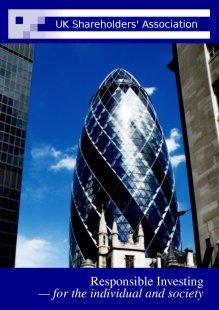UKSA identified the Persimmon LTIP as outrageous when it was first approved in 2012. This is more than a single-company story. It also shows what groups of individual shareholders could contribute to corporate governance were they not emasculated by the erosion of their rights in favour of conflicted institutional and corporate interests. Join UKSA to support the campaign against egregious LTIPs.
The story of the Persimmon LTIP illustrates fundamental flaws in the governance, measurement and reporting of executive pay that were as obvious in 2012 as they are today, and which the recent changes in the regulations conspicuously failed to address.
UKSA first campaigned against the Persimmon LTIP after its launch in October 2012.
Members of UKSA analysed the Plan and released its findings to members in December 2012 and publicly in January 2013. Estimated value £300million.
We called for rejection of the remuneration report in April 2013, and released details of our exchanges with the Chairman, Nicholas Wrigley, and institutional shareholders.
We updated our findings a year later in March 2014. Estimated value £400million.
.....and again in March 2016. Estimated value £600million.
.....and June 2016
And now estimates of £750million have been published
This sorry tale reveals a whole bagful of governance weaknesses crying out for action:-
- The full value and its implications have never been acknowledged by the company (which resisted UKSA’s attempt to seek transparency).
- Poor stewardship by the company’s fund management shareholders failed to curb this hugely excessive transfer of value from their investors to the company’s managers.
- Poorly-worded remuneration reporting regulations (against which UKSA has protested) have allowed this to go unnoticed.
- It’s hard to see how financial statements that ignore this transfer of value, equal to a full year’s net profit, can be said to present a ‘true and fair view’ as stated by the directors in their recent announcements of results.
- It’s hard to see how accounting standards that allow this transfer of value to be ignored can be fit for purpose in this respect.

